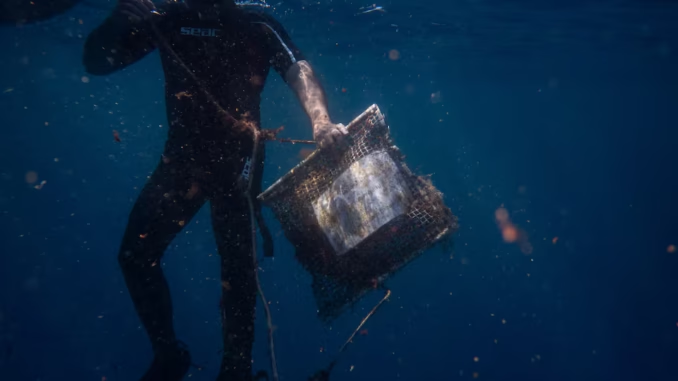
Mussels Expose Rising Microplastic Pollution in Greece’s Waters
SARONIC GULF, Greece, Nov 3 (Reuters) – Greek scientists warn that rising tourism and dense maritime traffic across the Mediterranean are fueling pollution in the country’s famous blue waters. To measure the extent of contamination, researchers have deployed thousands of mussels on the seafloor to detect traces of microplastics.
Mussels as Natural Pollution Detectors
Mussels are filter-feeding organisms that absorb impurities from the water, including invisible microplastics. Because they store these particles in their tissues, they have long served as natural indicators of marine pollution in research projects around the world.
Growing Concern Over Mediterranean Pollution
Experts say the surge in coastal tourism and the continuous movement of ships have intensified the presence of pollutants in Greek seas. By studying mussels, scientists aim to understand how microplastics spread through the marine environment and how they might affect ecosystems and human health.
The project highlights the growing environmental cost of human activity in one of the Mediterranean’s most treasured marine regions.
NEWS DESK
PRESS UPDATE
